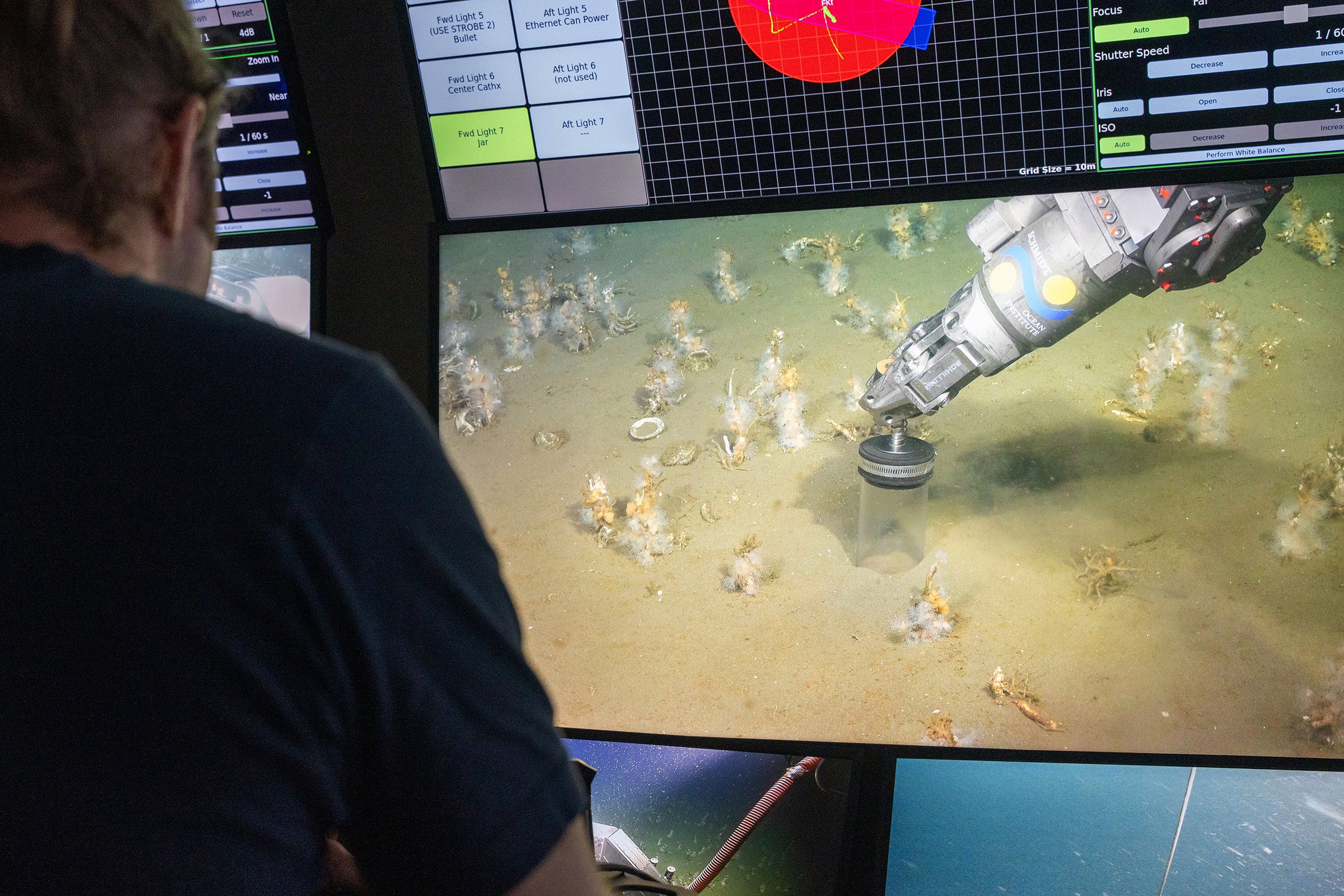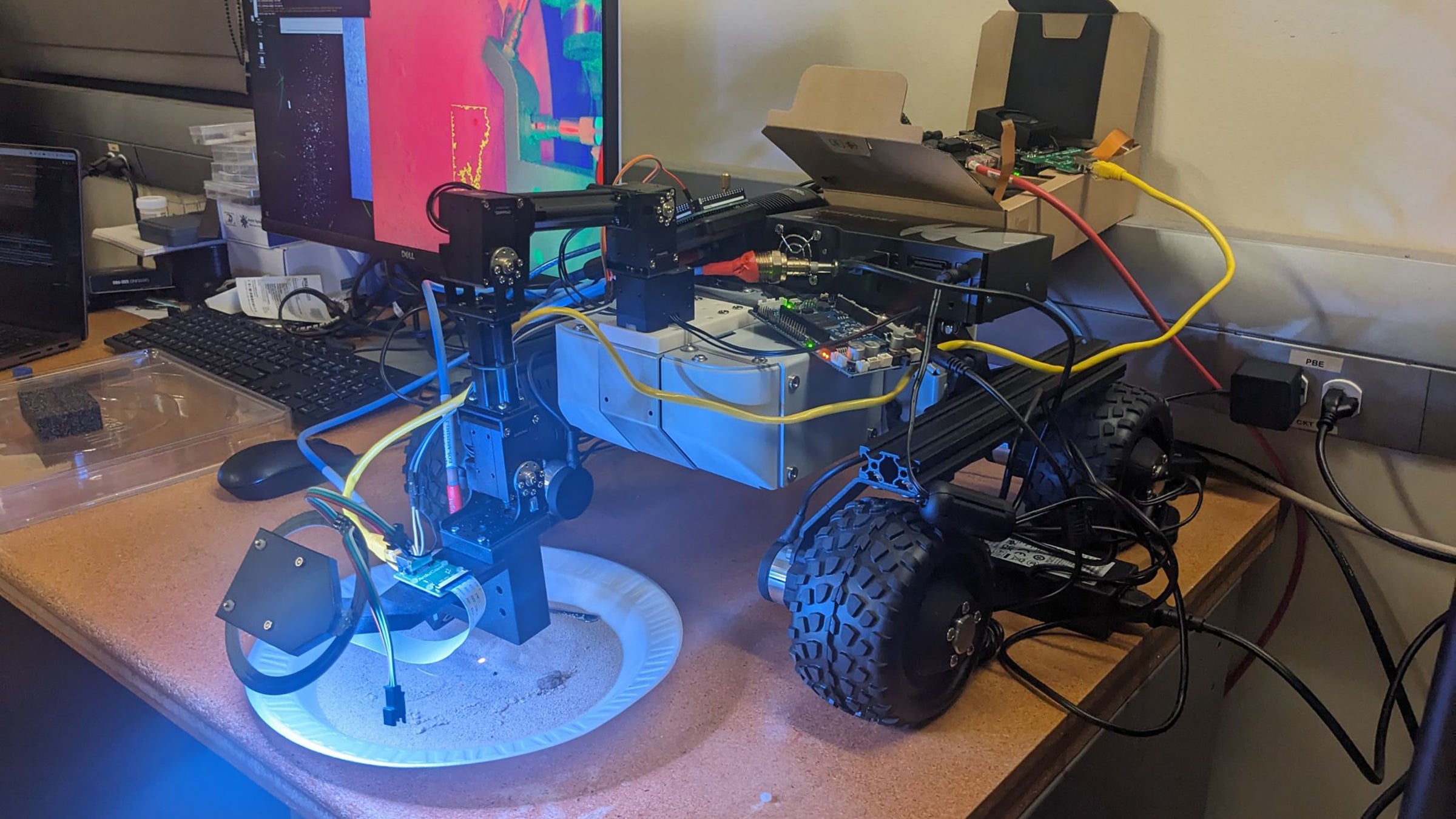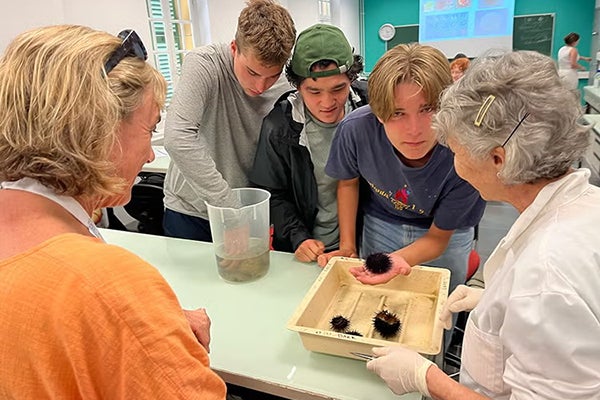Celebrating UT Austin’s First Black Graduate Degree-Holders in Zoology
Making discoveries about health and the natural world were among Oscar Thompson’s and Exalton Delco’s achievements.

Astronomy, biology, chemistry – the College of Natural Sciences has long offered advanced degrees across the ABCs of science disciplines, up to and, for many decades, including zoology. While today’s graduate students get degrees in ecology, evolution and behavior instead, the legacy of UT zoology lives on, including in the stories of some of the University’s first Black graduates with post-baccalaureate degrees.
Zoology was the specialization of UT Austin’s very first Black graduate, Oscar Thompson; he completed his master’s degree in January 1952, while studying sickle cell anemia. Five years later, Exalton Delco began his own graduate studies in the program, before going on to become the first Black Ph.D. graduate in UT zoology and shaping the trajectory of future scientists.
“Both Thompson and Delco later worked as college professors at HBCUs, committed to supporting the next generation of students and Black scientists in Texas,” according to “Opening the Doors: The First Black Students at The University of Texas at Austin,” a project of UT’s Contextualization and Commemoration Initiative.
For Black History Month, the College of Natural Sciences is resharing stories about Thompson and Delco, which were first published by UT News and the Department of Integrative Biology and have been edited here for space.
Excellence in the First Degree
by Avrel Seale
The name Heman Sweatt is rightly ingrained in UT history because of the 1950 Supreme Court case of Sweatt v. Painter that made him UT’s first Black student and laid the groundwork for Brown v. The Board of Education. Alas, Sweatt never earned the law degree for which he fought so hard for the right to pursue.

Rather, it was Oscar Leonard Thompson who in January 1952 became UT’s first Black graduate. Reared in Rosebud, near Waco, his college aspirations were first back-burnered by the Great Depression, then by his service in the Pacific during World War II. When he returned from war, he used the GI Bill to finish his degree at Paul Quinn College in Dallas.
He capitalized on the Sweatt decision and came to UT to pursue a master’s degree in zoology, with an emphasis on genetics. He was 45 when he became UT’s first Black graduate. Thompson became a research scientist assisting UT geneticist C.P. Oliver in investigating sickle cell anemia.
Just months after Thompson completed his thesis and graduated, John Chase earned his master’s of architecture. [Editor’s note: In January 2025, the UT Architecture library was named for Chase.] In 1956, UT admitted its first Black undergraduates, of which there were about 75.
When he died in 1962 at 55, Thompson was working on his Ph.D. and teaching at Huston-Tillotson College in Austin. UT flew its flags at half-mast.

Sickle cell anemia red blood cells under microscope. Credit: iStock
Exalton Delco: UT’s First African American Ph.D. in Zoology
by Nicole Elmer
Exalton Alfonso Delco, Jr. began his Ph.D. work in the Department of Zoology at UT in 1957. Although UT was deemed “desegregated,” the campus and surrounding businesses at the time still had resistant attitudes towards full integration of African Americans, making the pursuit of a degree not for the faint-of-heart. Like many African Americans in his generation pursing higher education at UT, Delco withstood many of the challenges to have a long and influential career in higher education.
Delco was born September 4, 1929 in Houston in a neighborhood called Studewood. He was the only child to a butler and a housewife. Growing up, Delco was intuitively curious about nature. He would pick leaves and gather seashells, later trying to find their proper scientific names.

Delco attended Jack Yates High School, where he graduated in 1945 as valedictorian, and at the age of 15, he entered Fisk University, a private historically black university in Nashville, Tennessee. At Fisk, he majored in biology and was involved with the research of embryologist Lloyd Alexander, who studied the way the eye formed. Delco also met his wife, Wilhelmina Delco, while they were both students at Fisk. They would marry in 1952 and go on to have four children. After graduation from Fisk in 1949, Delco attended the University of Michigan for his master’s studies. There, Delco became interested in entomology and worked with beetles and maze learning.
After obtaining his master’s, Delco taught at Texas Southern University in Houston, educating noteworthy students such as Barbara Jordan, who would serve in Congress and become a nationally recognized civil rights leader.
In 1954, Delco applied for admission at UT Austin to continue his education but was instead drafted into the U.S. Army. He served in a MASH unit (Mobile Army Surgical Hospital) in Germany where he worked as a surgical tech, or a “scrub nurse” as they were called. When he returned, he used his veteran benefits from the GI Bill to attend UT.
As one of only around a dozen students then involved in Ph.D.-level coursework in the Department of Zoology and as the only African American in 1957, Delco studied ichthyology under Clark Hubbs, widely considered one of Texas’ foremost researchers in the subject and the force behind establishing UT’s Ichthyology Collection.

Cyprinella lutrensis. Source: UT’s Ichthyology Collection and Fishes of Texas. Credit: Ben Labay
For his dissertation, Delco focused on red-horse shiners (cyprinella lutrensis), blacktail shiners (cyprinella ventusa) and three hybrid zones where the species interbred. Interested in understanding why hybridization was occurring, Delco used recording devices and a sonic approach that allowed him to analyze the mating calls of the two species; he concluded that hybridization was related to noise interference from things such as a waterfall and a nearby factory. The two different species could not hear their own mating calls, and as a result were interbreeding, as his dissertation a few years later would demonstrate.
Shortly before Delco received his Ph.D. in 1962, he began teaching biology classes at Huston-Tillotson University, where he would go on to serve for 25 years, eventually becoming dean. Delco would also serve for eight years as the Vice President for Academic Affairs at Austin Community College and as a special assistant to UT President Robert Berdahl, supporting UT’s connections with community colleges and HBCUs.



